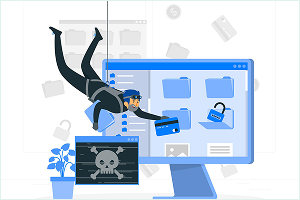Elevate Engagement: Build a Culture of Cyber Awareness That Sticks

Creating a lasting security-aware culture shouldn’t drain your resources or your time. That’s where Elevate Engagement steps in. As part of Phriendly Phishing’s award-winning solution suite, Elevate Engagement helps organisations stay top-of-mind with cyber security by delivering engaging, branded, and expertly crafted internal communications and awareness campaigns.
Fill in the form to request a free demo from us!

Comprehensive phishing simulation features
Schedule Simulated Phishing AttacksEasily plan and deploy phishing simulations that mimic real-world attacks. Customise scenarios with various tactics including:


Unique QR code simulations
Enhance your training program with our innovative QR Code phishing simulations. Delivered via email, these simulations test your team’s ability to recognise and avoid QR-based phishing attempts.

Lighten your load with Phriendly Phishing’s automated learning platform
Phriendly Phishing’s fully automated learning platform lets you upload your users to our automated portal, choose the learning you want to run, select the timeframe for roll out and then sit back and wait for the results to come in.
Free up your IT team’s time with our fully automated training solution. Automatically re-enrol learners when you’re ready.
Track your organisation’s phishing risk, overall phishing awareness, historical trends and staff performance in one place.
Access training from any device with an internet connection. Our platform is optimised for mobile devices.
Drive awareness and behaviour change with bite-sized training that fits your team’s workflow.
Access real-time dashboards to report on risk scores, compliance, and progress.
New micromodules released as threat tactics and trends emerge and change.

Scam artistry is called the ‘confidence game’ but this course will turn the tables. Give your people the confidence to fathom phishing and its fraudulent tricks.

Equipped with knowledge of what constitutes phishing, your staff will apply their keen detective skills to spot counterfeit web pages and messages, and learn how to report their findings.

S.C.A.M 201 graduates step up to tackle a scenario where they educate a new starter about phishing. Harness the power of peer teaching to drive phishing knowledge deeper.

Phishing doesn’t stop at your organisation’s front door. Give staff the tools to help their friends and family scout for phishing locations and markers whenever they’re online.

Threats to data aren’t just limited to phishing. Poor or ill-informed work practices can also expose sensitive data. Give your staff a good all-round understanding of data protection with our general security awareness series, Keep Secure 5.
Keep Secure
In 6 online progressive modules your staff will learn answers to burning questions like:
- Why should I care about this stuff?
- Why is working on the free Wi-Fi at the café down the street such a bad idea?
- What’s wrong with using my own mobile to do a Facebook quiz in the breakroom?
- Is there such a thing as the perfect password?
Keep Secure Mini
Practice makes perfect.
Graduates of Keep Secure can hit refresh with 3 modules to help them review their personal security practices and work towards mastering good habits. It’s the ideal solution for anyone who has come back to the organisation or who sensibly wants an annual refresher.
Award-winning phishing simulation & cyber security training
Out of thousands of entries worldwide, Phriendly Phishing joined the winner’s podium at the 2025 LearnX Awards and more!









Don’t take our word for it




